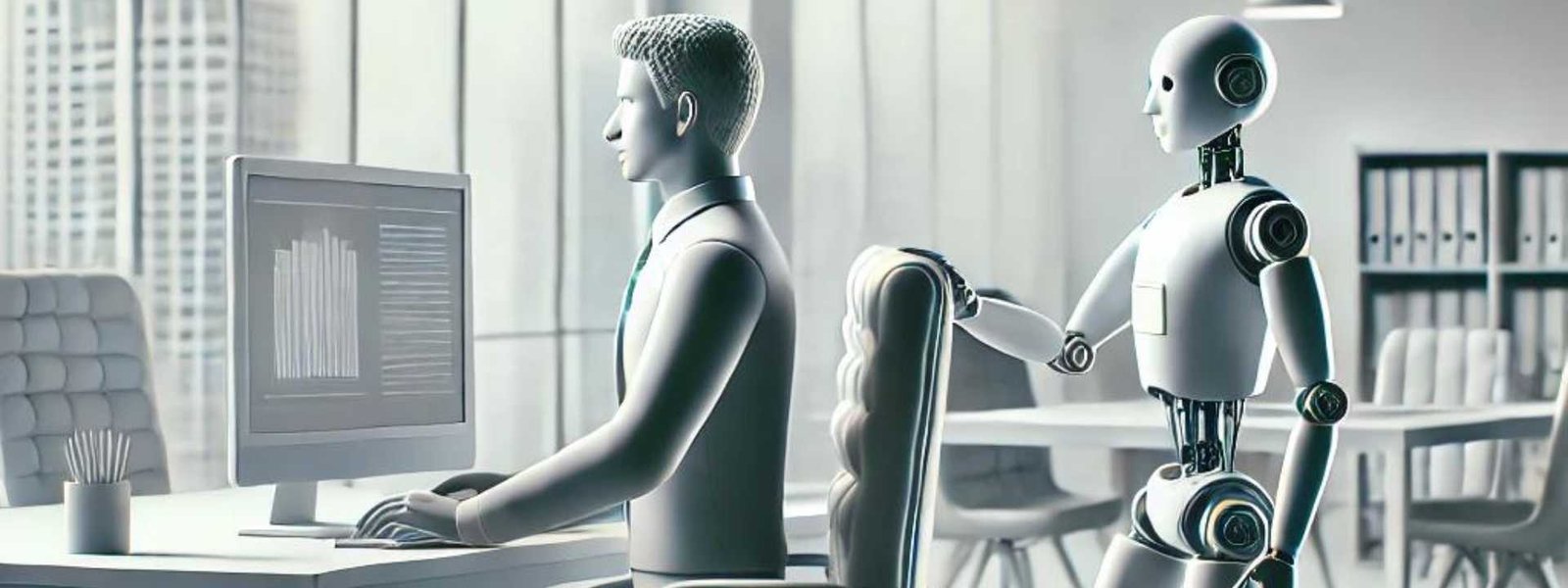Is AI About to Rewrite the Future of White-Collar Jobs?
Just recently, Google’s CEO Sundar Pichai revealed that over 25% of new code at Google now originates from AI, with human engineers overseeing and refining it. This isn’t just Google flexing its tech muscles; it’s a signal that the role of software development is changing. With AI handling more of the actual coding, engineers are freed up to tackle higher-level challenges. But this also raises important questions: if AI can handle so much of the technical work, what’s left for entry-level developers? And what does this mean for other industries?
AI is Reshaping the Tech Industry: How Coding Jobs are Evolving
Google isn’t alone in leaning on AI to streamline workflows. Amazon, Microsoft, and even Goldman Sachs are also using AI to automate labor-intensive tasks and cut down on the need for extensive engineering teams. Nvidia’s CEO Jensen Huang envisions a future where 50,000 employees work alongside 100 million AI assistants. His vision suggests that AI could soon be embedded in every function, boosting productivity and cutting costs across the board.
The Role of AI Coding Tools and What It Means for Software Development
Today’s AI coding tools, like GitHub Copilot, Amazon’s CodeWhisperer, and Nvidia’s StarCoder2, have already redefined software development. These tools offer real-time code suggestions and significantly reduce the time needed for manual coding. Stack Overflow’s latest survey shows that 76% of developers are either using or planning to use AI tools—a telling sign of where things are headed.
What Happens to Traditional Developer Roles as AI Takes Over Coding?
AI doesn’t just make coding faster; it’s reshaping what developers actually do. With 25% of Google’s code now generated by AI, the need for large development teams may be dwindling. Goldman Sachs is already using AI to handle tasks like application development and compliance checks—functions that once required human expertise. As AI takes on more coding responsibilities, developers may shift from writing code to managing AI outputs and quality control, turning the job into something more supervisory.
AI’s Growing Influence Beyond Tech: Creative and Content Roles at Risk?
The impact of AI is already hitting creative fields. Tools like ChatGPT can whip up articles in minutes, while DALL-E and Midjourney allow anyone to create digital artwork on demand, challenging the roles of designers, writers, and marketers. According to McKinsey, up to 30% of tasks in 60% of occupations could be automated by 2030. This could mean leaner teams in content and marketing, with roles focused more on curating and refining AI outputs than creating them from scratch.
Job Loss or Transformation? AI’s Impact on the Future of Work
Not everyone sees AI as a threat to jobs. Nvidia’s Huang envisions a world where AI agents and humans work together, automating routine tasks and breaking down complex problems into manageable steps. Nvidia already uses AI in areas like cybersecurity and chip design, proving that AI can support rather than replace human roles.
AI isn’t perfect—it lacks creativity, complex problem-solving, and the ability to make nuanced decisions. In fact, a Stanford study found that AI-assisted developers introduced more bugs, underscoring the need for human oversight. History shows that while technology can eliminate some jobs, it also creates new ones. AI might shift roles like developer, writer, or designer into areas like AI supervision and strategic oversight.
Embracing AI in the Workplace: How Professionals Can Thrive
As AI transforms fields from coding to content creation, professionals face a choice: adapt or risk being left behind. This isn’t about job loss alone; it’s a chance to redefine careers. By embracing AI, learning to collaborate with it, and focusing on uniquely human skills, professionals can create new, impactful roles in an AI-driven world. AI can even drive job growth—by making companies more productive, it fuels growth and potential new hires.

More Blogs From Rathin Sinha
Read Company Blog

